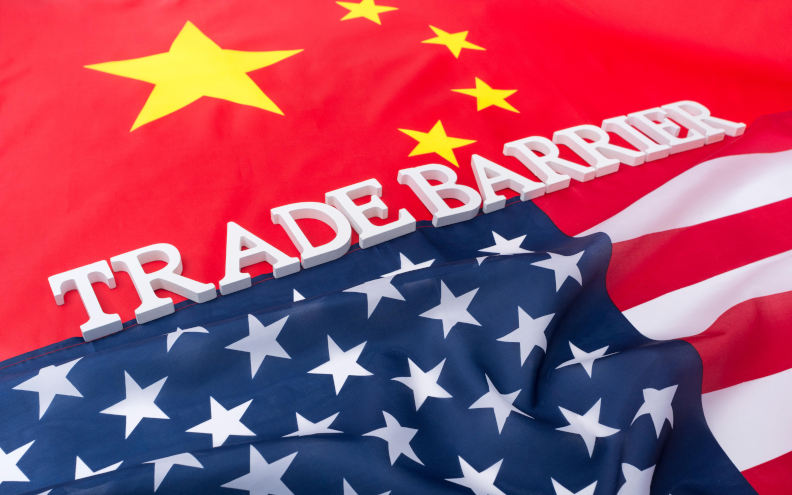Memory shapes China's response to Trump’s tariffs
April 24, 2025
To asses China’s reaction to Donald Trump’s tariffs we have to go back around 165 years.
To understand the context of China’s response we have to start with the situation in the United States 165 years ago. They were embarking on a civil war that would tear apart the emerging country. What is most important about this event is not who lost or won, but the ongoing modern impact on American politics.
When the modern-day rebels stormed the steps of the White House on 6 January 2021, they carried the Confederate flag, some 165 years after their defeat in the Civil War. The flag remains a potent symbol to many of those who still support Trump and it reflects the ideas and attitudes that drove the original Confederate states.
This is relevant to our understanding of China because the influence of a 165 year old event is something we readily accept when it comes to assessing modern-day American politics. However, Western commentators are quick to dismiss the modern-day influence of the Opium wars on Chinese thinking. They say the events that started what China calls the “century of humiliation” are ancient history and not relevant to today’s politics in China. They urge China to “grow up”, forget the past, and stop referencing the century of humiliation.
Just as the Confederate flag-wavers cannot forget the humiliation of the civil war, China cannot forget the events of the 1860 Opium war and the years that followed. It is this valid memory that shapes China’s response to Trump’s tariffs.
Quite simply, China will not allow itself to again to be bullied by Western nations, and by Trump’s America in particular. There is no room for negotiation on tariffs of 100% or more. There is no room for manoeuvre when the threat of foreign interference again looms large.
There may be no threat of invasion, nor the surrender of treaty ports and no physical presence in China. But Trump’s tariffs, like those of his predecessor Joe Biden, are deliberately designed to inflict injury on China. America’s arrogance is complete when Trump raises tariffs even further because China has the temerity to resist and retaliate against the first round of tariffs. How dare China resist!
China is reported to be prepared to “fight to the end”. Trump and his advisers fail to understand what this means and why this response has come about. China will fight to the end to overcome foreign interference in its internal affairs. It will fight to the end to prevent its economic growth being destroyed by the policy actions of foreigners. As China’s official spokesman noted, “We will not let anyone take away the Chinese people’s legitimate right to development.”
We cannot, and should not, underestimate China’s resolve to never allow a repeat of the Opium wars and the 165 years of exploitation that followed.
A popular meme in China, loosely translated sums up China’s position: “Talk; Can. Fight; Can. Bully China; Never!
When examining Australia’s own response to China and its reaction to Trump and his bully-boy tariffs, Australia needs to carefully consider China’s determination. It has historical roots that are equally as powerful, and as equally influential 165 years later as the power of Confederate thought in America.
More broadly, what is at stake is the global support for the framework of free trade. Imperfect as it may have been and in need of modification to acknowledge the changing circumstance of the global economy, it was a structure that underpinned the last half-century of global prosperity. Australia’s lukewarm resistance to America’s refusal to appoint appellate judges to the World Trade Organisation has helped undermine it at a time when it is most needed.
It is an irony that Australia, Europe, Japan, South Korea and Canada all spent time de-risking from China on America’s orders when they should have been de-risking from America.
The threats to the global rules-based order come from within and, however imperfect, it is not improved by Trump’s actions.
Make no mistake, China will confront these tariffs and fight to the end. The weapons it chooses to use will be a carefully considered combination of pinpointed tariff responses, exploiting points of weakness like rare earths and a gathering of trade networks in the region and globally which unite all who are not prepared to accept Trump’s destruction of the global order.
Trump thinks this is about trade. China knows it’s about sovereign independence, resisting the foreign bully and its determination to never again be at the mercy of foreign powers.

